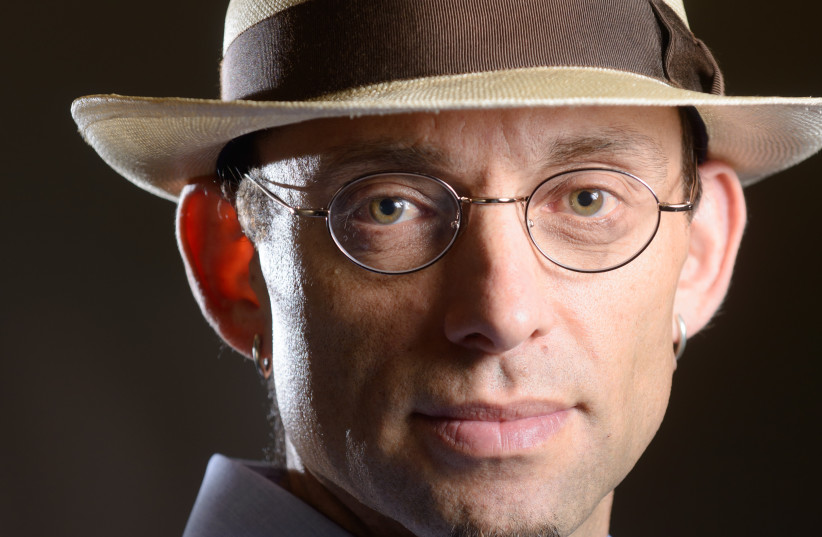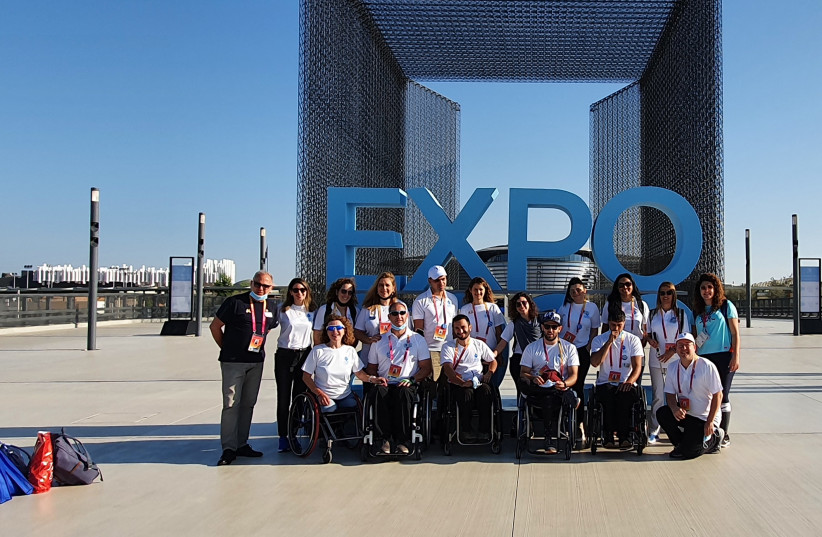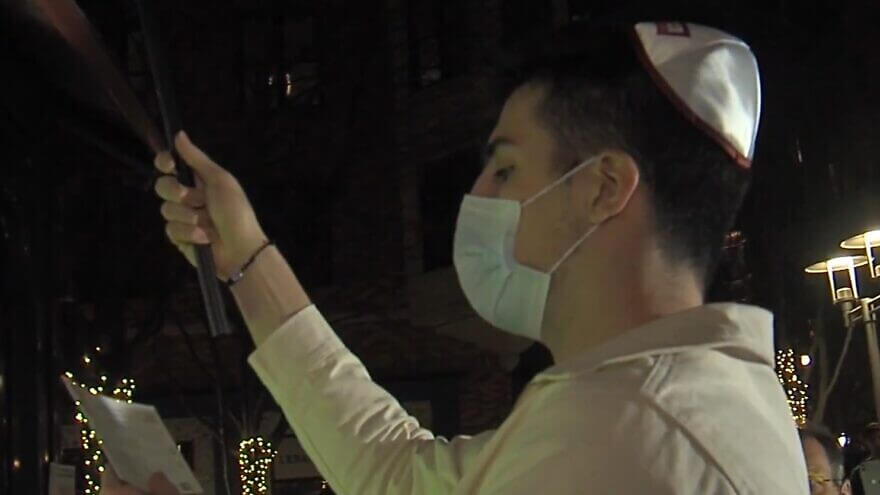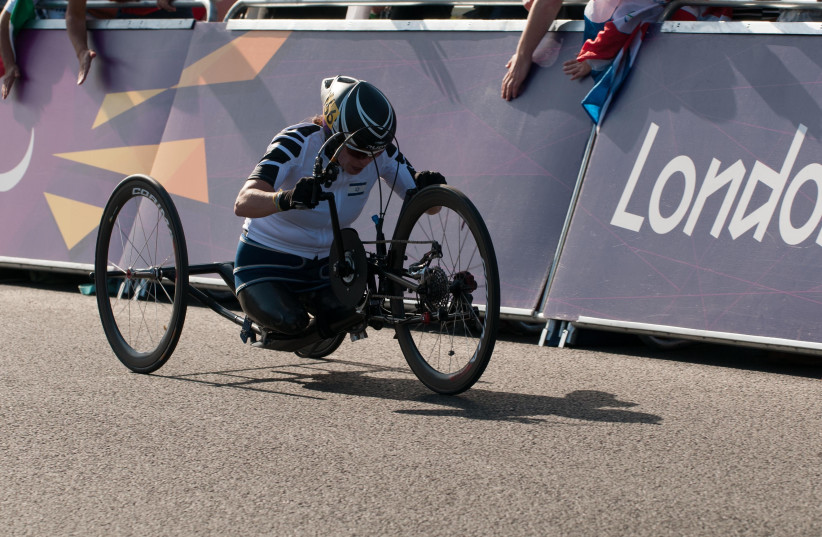Professor Yaniv Poria’s recent master’s degree course is giving future travel industry leaders the tools to improve travel and recreational experiences for people with a wide range of disabilities.
At first glance, Professor Yaniv Poria doesn’t appear to be the most traditional Jew on the planet. He regularly wears a hat, but it is more Leonard Cohen than traditional Jewish; he sports a goatee beard and he wears earrings. Yet, the Ben-Gurion University of the Negev professor at the Department of Hotel and Tourism Management, Guilford Glazer Faculty of Business and Management would proudly argue that his entire career is informed by Jewish values and outlook.
Through his teaching and writing, Poria works hard to bring the unique needs of often marginalized populations – including LGBTQ, people who are obese, and people with disabilities – to the forefront. His recent course for undergraduate and graduate students from the Beersheba and Eilat campuses, “Impacting Accessible Tourism: Impact Entrepreneurship as a Tool for Making Tourism Accessible for All” is giving future travel industry leaders the tools to improve travel and recreational experiences for people with a wide range of disabilities.
Poria traces his interest in people with disabilities to a formative experience that happened when he was a young soldier.
“I was a soldier on Arlozoroff Street with all the real man symbols – a gun, a red kumta [beret], red shoes…” recounts Poria. “I looked up and I saw some young religious Sherut Leumi girls around my age. My first reaction was, ‘Why don’t they go into the real army?” He then recalls observing the girls helping a group of children with disabilities saying goodbye to their parents for the weekend. The curious Poria engaged one young woman in conversation.
“What if on Shabbat, you need to buy diapers?” he asked. “I will go to SuperPharm and run faster than you!” one replied. Poria was shocked and began to wonder, “What is more difficult – to be on the borders, or to take care of these kids?” Poria was a changed man.

“I decided that, in my own way, I will make their life better. I will do research and focus on the travel experience and will assist wherever I can.” Now, as a professor, writer, editorial board member and reviewer for many tourism and hospitality journals, he is living up to his word.
Poria has pursued many areas of interest on the way to his very successful accessible travel course. Earlier in his academic career, he researched visitors’ experiences at heritage tourist sites.
“I focused on management of Jewish heritage sites because people were losing Jewish heritage and Jewish identity.” He proudly reports, “I am a Jewish researcher. I look at Jewish heritage. It is the way I interpret Judaism.”
He concedes that this and his subsequent areas of academic research could have harmed his academic career.
“This could have put my academic career in danger!” as they were “of no interest to the mainstream.” He playfully refers to himself as “the rasha [evil child] of the Passover Haggadah.
After doing PhD work in the UK and returning to Israel, Poria conducted research on what he describes as “special segments often ignored in the tourism literature,” including gays and lesbians and people with disabilities. He also studied people who are obese. A 2017 paper published in the Journal of Travel Research is titled, “An exploratory study about obese people’s flight experience.”
“I did a study on obesity which is the new form of disability. Due to their appearance, people suffer from racism. I call it a social disability.”
WHEN PORIA decided to devote his attention to teaching a course on accessible tourism, he figured literature and course material would be readily available.
“I made an assumption I‘d find another course,” reports Poria, who planned to adapt and expand material for his proposed course. “I wasn’t looking for a course on technical issues like measurements (i.e. of an accessible bathroom). I wanted a course about dilemmas, a course with a body of knowledge for those who want to manage.” He and a teaching assistant got to work in designing a three credit graduate course—with a five-page syllabus, nine required readings, 14 recommended readings, and 13 sessions.
“This was different from all of my other courses,” concedes Poria. “Each session started with a meeting with a person in management of disabilities tourism, or a person with a disability – a person who is blind, or deaf, or who has a child who is autistic.” He adds, “The students learned how people are treated in the hospitality and tourism industry. They imagined what it would be like to travel with a disability.”
One presenter, Omer Zur, knows a great deal about accessible travel. Many years ago, Zur wanted his father, paralyzed during the Yom Kippur War, to join him for the final month of his three-year post-army trip. They jointly designed Paratrek Trekker, a device that can handle off-road hiking without taking away his father’s independence. Zur is founder and CEO of Paratrek and has used the Trekker to successfully help people with paraplegia navigate 19,341-foot Mount Kilimanjaro.
Zur appreciated the opportunity to speak to the class as “until recently, it was thought that people with disabilities should stay home or go out only to specific places.” He has seen a change in recent years but feels the travel industry still has more to learn. “When people who provide the tourism experience know more, and better understand the needs of people with disabilities, they will be able to provide better service.”
Fred Maahs Jr, a wheelchair user who is also chief operations officer for Travel for All and editor of Melange, Accessibility for All magazine, wasn’t able to speak to Poria’s students, but he is delighted to learn about the course. Maahs, who recently returned to the United States after attending Expo2020 in Dubai, notes the many challenges that still exist for travelers with disabilities including lack of adequate accessible transportation.
“The mere fact that people with disabilities still have to do their own research in order to ensure that their travel destination is adapted and accessible tells you that we still have a lot of work to do.”
Poria’s students found the course, sponsored by the Rothschild Foundation, to be challenging and demanding yet rewarding. The final project involved students speaking with people with disabilities, identifying problems and suggesting a solution that would be affordable and ultimately lead to profits for those who implement it. Poria didn’t want his students to lose sight of the fact that while they are learning to be sensitive practitioners, they are graduate students in a school of business and management.
ELI LEVY has a close relationship to disabilities and took his final assignment very seriously.
“I am the son of a disabled father who grew up when there was a very low awareness of the subject.” Levy reports, “My partner and I have chosen to develop a technological aid that will allow the blind to dive and experience an accessible and as close experience as possible to the experience of a sighted diver. As part of the work we were exposed to many stakeholders in the field, diving clubs, product engineers, blind organizations and of course the blind themselves.
“The experience was challenging and the results were interesting and surprising. It was evident that there was a huge need to make tourism accessible to this population and the enthusiasm as well as the cooperation on their part was immense. It was an experience to be part of a unique and first-of-its-kind course and the feeling was of pioneering in a field that requires a lot of investment and research in the future as well.”
Levy adds, “Professor Yaniv Poria is an impressive and interesting man and I really wanted to take a course under his guidance!”
Or Dvir felt the course was “unique” and that it exposed her and her classmates to “the gaps that exist between the demands and needs of those we so desperately want to host and the situation and infrastructure that exists in Israel. We have been exposed to the day-to-day challenges of those who want to enjoy leisure and tourism services like everyone else.”
She reports learning a very valuable practical lesson which will help in her career.
“I learned that the most important thing is the ability to ask, knowing that the first and most important step on the path to full accessibility for all is an understanding of the real needs of those in front of us. If we do not look our guests in the eye, without shame, and ask them how we can make this vacation fun and easy for them, we are not doing our job as service providers.”
Eli Meiri is no stranger to the disabilities travel industry. The 67-year-old graduate student, Pardes Hanna resident, tour operator and tour guide who specializes in tours for people with disabilities (and founder of Israel4All, an accessible travel company in Israel), enjoyed the course and continues to internalize its message.
“Accessibility for all is a way of life. I think everybody must have a way to get everywhere. People with disabilities have the right and need appropriate opportunities to get out of their homes for fun and recreation and to participate in all parts of communal life.”
Poria is delighted with the feedback he has received for the course and continues to dream big.
“I think the course is only a first step. I would like to develop a center focusing on conducting the best research about people with disabilities and travel, tourism, recreation and leisure experiences. Our findings would not be just in academic journals but would be available to all. This can be done easily. This is being an or l’goyim – a light to the nations – and it should be done in Israel, and at Ben-Gurion University, which has a spirit of innovation.”





